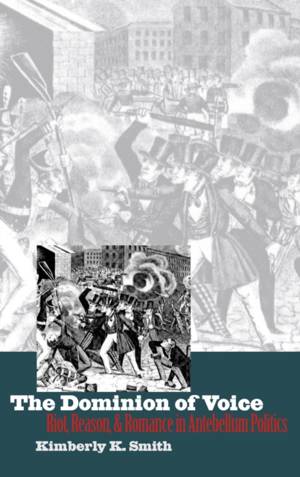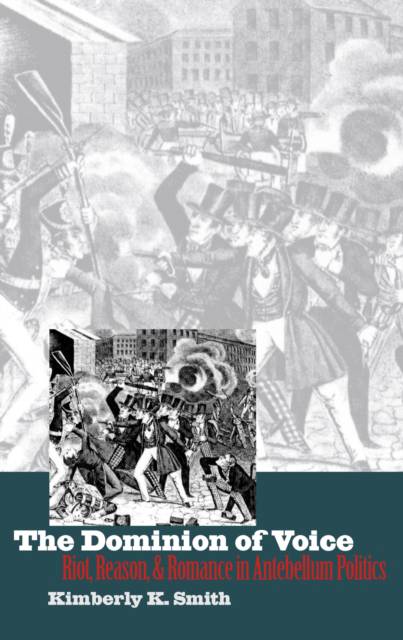
- Retrait gratuit dans votre magasin Club
- 7.000.000 titres dans notre catalogue
- Payer en toute sécurité
- Toujours un magasin près de chez vous
- Retrait gratuit dans votre magasin Club
- 7.000.000 titres dans notre catalogue
- Payer en toute sécurité
- Toujours un magasin près de chez vous
Dominion of Voice
Riot, Reason and Romance in Antebellum Politics
Kimberly K Smith
Livre relié | Anglais
69,45 €
+ 138 points
Description
In this work of historically informed political theory, Kimberly Smith sets out to understand how nineteenth-century Americans answered the question of how the people should participate in politics. Did rational public debate, the ideal that most democratic theorists now venerate, transcend all other forms of political expression? How and why did passion disappear from the ideology (if not the practice) of American democracy? To answer these questions, she focuses on the political culture of the urban North during the turbulent Jacksonian Age, roughly 1830-50, when the shape and character of the democratic public were still fluid. Smith's method is to interpret, in light of such popular discourse as newspapers and novels, several key texts in nineteenth-century American political thought: Frederick Douglass's Fourth of July speech and Narrative, Angelina Grimke's debate with Catharine Beecher, Frances Wright's lectures, and Harriet Beecher Stowe's Uncle Tom's Cabin. Such texts, Smith finds, highlight many of the then-current ideas about the extremes of political expression. Her readings support the conclusions that the value of rational argument itself was contested, that the emergent Enlightenment rationalism may have helped to sterilize political debate, and that storytelling or testimony posed an important challenge to the norm of political rationality. Smith explores facets of the political culture in ways that make sense of traditions from Whiggish resistance to Protestant narrative testimony. She helps us to understand such puzzles as the point of mob action and other ritualistic disruptions of the political process, our simultaneous attraction to and suspicion of political debates, and the appeal of stories by and about victims of injustice. Also found in her book are keen analyses of the antebellum press and the importance of oratory and public speaking. Smith shows that alternatives to reasoned deliberation--like protest, resistance, and storytelling--have a place in politics. Such alternatives underscore the positive role that interest, passion, compassion, and even violence might play in the political life of America. Her book, therefore, is a cautionary analysis of how rationality came to dominate our thinking about politics and why its hegemony should concern us. Ultimately Smith reminds the reader that democracy and reasoned public debate are not synonymous and that the linkage is not necessarily a good thing.
Spécifications
Parties prenantes
- Auteur(s) :
- Editeur:
Contenu
- Nombre de pages :
- 326
- Langue:
- Anglais
Caractéristiques
- EAN:
- 9780700609574
- Date de parution :
- 30-06-99
- Format:
- Livre relié
- Format numérique:
- Genaaid
- Dimensions :
- 162 mm x 238 mm
- Poids :
- 639 g







